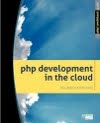Google always leave us with little room to wonder why it is so much loved by developers like me. At the moment at least, I guess the model of success for a software company is so much an anti-theses of Gates' original position on evolving software with retail economics in his famous 1981 letter.
Google changed that. So, now we have a company that buys expensive software "by the company" and releases its intellectual property to the public to use, for free. Man, it feels like the scene from Last Samurai where Emperor Meiji, maddened with Omura's monopolising ways, confisticate his estates and fortunes and gives it to the people. Except this time, Omura is obliging.Liberty, at last, sweet liberty. I got a taste when I was tasked to map offices for presentment in CDs, websites etc. This could be an irritable task, drawing maps, directions, adding on changes (graphically by the layers, if you know what I mean). All sorts of unelegant mouse manipulation involved.. With Google Maps API, heh, we have Semantics and as such, we get closer to reality and thus easier representation. Task completed, with code, not pixels,
less memory used, less time used, more flexibility, the list goes on. Getting it right is always good, or so it seems at least to me.
Here, we see how the creative gale of destruction that is Google gets cracking. Now, we only need a:
var currentVehicleLoc = new GMarker(new GLatLng($lat, $long));
to indicate a position in a clouded map. Imagine what this can do. I think the benefits of proprietary GPS locationing systems gets immediately obsoleted. Here, we have a simpler way of locationing in a common sharable, secure-able realm that is better than the raster or what-not proprietary systems of thousands of Omura-like companies, now gone to waste. Art is futile.
